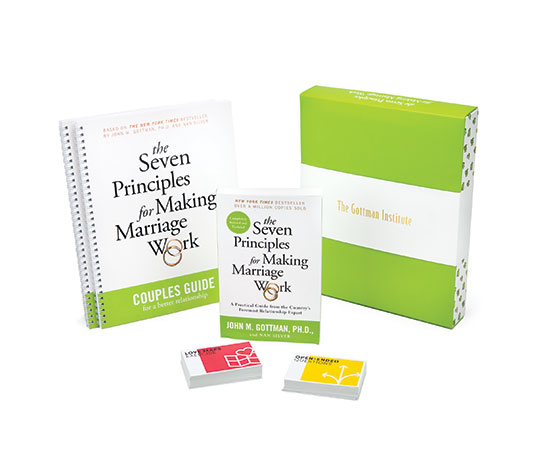Trigger warning: This article discusses sexual assault and violence.
October is Domestic Violence Awareness Month. Over the years, the term domestic violence has been broadened to the more accurate term, intimate partner violence, acknowledging that abuse can occur regardless of marital status, gender, or sexual orientation.
When you hear the term domestic or intimate partner violence, you probably imagine a woman with a black eye, fleeing in the middle of the night to escape her batterer. While that image is accurate, it does not capture the depth and breadth of what many women experience. It also does not bring into focus the batterer.
I should mention that while the majority of domestic violence victims are women, abuse of men happens far more often than you might expect. Data from the National Intimate Partner and Sexual Violence Survey indicates that one in six men in the United States have experienced some form of contact sexual violence during their lifetime, and 11% of men have experienced contact sexual violence, physical violence, and/or stalking by an intimate partner.
Intimate partner violence is about power and control and it can take many forms. Dr. John Gottman and Neil Jacobson studied violent relationships and wrote the compelling book When Men Batter Women. From their work, we can better recognize the characteristics of the most dangerous batterers, the “Pit Bulls” and “Cobras.”
Pit Bulls have stereotypical traits of a vicious dog latching on and not letting go. These men are emotionally dependent on their partners. They fear abandonment and are controlling, jealous, and react violently to perceived betrayal. Cobras, like the venomous snake, attack their partner without warning. They have sociopathic, antisocial traits and a pathological need for power and control. Their behavior is calculating and sadistic. The book also discusses physical aggression in couples that is not rooted in control and intimidation, but rather is situational in nature, and potentially treatable in couples therapy.
In intimate relationships, partner rape is one of the many ways men can exert power and control over women. It is the most underreported form of rape, and in many states marital rape is still considered a lesser crime than rape by a stranger. In fact, until 1975, every state had a “marital exemption” that allowed a husband to rape his wife without fear of legal consequences. It was only in 1993, 25 years ago, that every state and the District of Columbia passed laws against marital rape. However, it’s still more difficult for a spouse-victim to prove that she didn’t consent to her husband than it would be to prove non-consent with a stranger.
The asymmetrical power dynamics of sexual assault are staggering. In the US alone, nearly 23 million women and 1.7 million men have been victims of completed or attempted rape. According to the CDC, for female rape victims, an estimated 99% had male only perpetrators and for male rape victims, 79.3% had male only perpetrators.
Women worldwide have trudged through vulnerability and shame to share their painful #MeToo stories. Many have finally found the courage to speak out about the unspeakable on social media, in therapy, with their friends and families, and on television. These brave women have endured harassment, ridicule, blame, and death threats. Their courage is inspiring other victims to speak out. Without them, we would never see change.
#MeToo empowered women to tell their stories, but they were often stories about anonymous perpetrators (an ex, a former classmate, a neighbor). With intimate partner violence, it feels riskier because the perpetrator can easily be identified, and it may lead to further violence. Another difference is that in the #MeToo movement, several women may be identifying the same perpetrator, adding to the credibility of the claims.
When women report sexual assault by a stranger, they often gain more sympathy than women in violent intimate relationships. Rape by a stranger is clearly assault, but many fail to view intimate partner violence in the same way. They see women willingly staying in these relationships and this leads to victim blaming.
In When Men Batter Women, Gottman and Jacobson discuss the confusing nature of violent relationships. Battered women can feel emotionally connected to their partner and have great fear of leaving them. Trying to leave a violent relationship can escalate the danger of further battering. For women to leave violent relationships they must be prepared and have carefully planned their escape to safety.
It is often uncomfortable for men to discuss intimate partner violence or sexual assault. It may feel like criticism of their entire gender. At the heart of these discussions are issues relating to power and control, a topic that that must be examined with a broader lens.
The reality is that for millennia, men have wielded far reaching power. When power is challenged, there is always backlash. In 2020 we will celebrate the 100-year anniversary of the 19th Amendment which gave women got the right to vote. The movement didn’t start in 1920. Women had been organizing and protesting for decades. Since that time, women have engaged in battles for reproductive rights to manage their own bodies, for equal pay, and the shattering of the glass ceiling in business and politics. Men did not have to fight for these things.
Change is slow and the road is bumpy. We don’t always recognize the nuances in how power and control are turned over to men, but even the language we use is problematic. In his viral TED talk, Jackson Katz reminds us that the words we use put the responsibility of ending sexual assault on women, not on their male perpetrators. We cite statistics of how many women are raped each year, but not how many men rape them. We talk about how many girls get pregnant, but not how many boys impregnate them.
Katz goes on to say:
The use of the passive voice has political effects. It shifts the focus off of men and boys and onto girls and women. Even the term “violence against women” is problematic. It’s a passive construction. There is no active agent in the sentence. It’s a bad thing that happens to women, but when you look at that term “violence against women,” nobody is doing it to them. Men aren’t even a part of it.
This is the language that lends itself to victim blaming and makes domestic violence and sexual assault women’s issues. It leaves men out of the equation completely.
Women cannot and should not bear the responsibility alone for creating change where intimate partner violence or sexual assault are concerned. Many emotionally intelligent men are speaking out as allies. These are the men, the admirable men, who accept influence from women, respect them, honor them, and share power and control. They are demonstrating great courage and vulnerability by standing up against the message to “man up.”
As Domestic Violence Awareness Month comes to an end, let’s not forget the brave survivors of intimate partner violence. Their #MeToo stories matter, too.
Domestic Violence Awareness Month evolved from the “Day of Unity” held in October 1981 by the National Coalition Against Domestic Violence. The intent was to connect advocates across the nation who were working to end violence against women and their children. The “Day of Unity” soon evolved into a week, and in October of 1987, the first National Domestic Violence Awareness Month was observed. In 1989 Congress passed Public Law 101-112, officially designating October as National Domestic Violence Awareness Month.
To get help, call 800-799-SAFE. You can also get help through email or live chat on the National Domestic Violence Hotline contact page.






